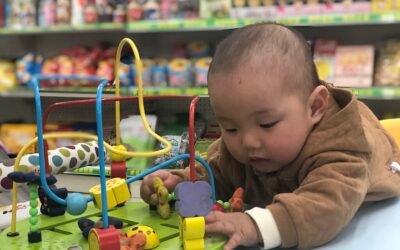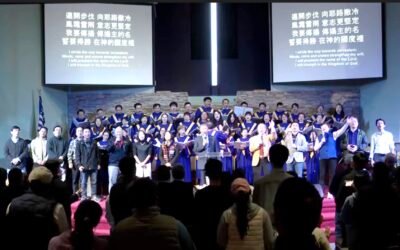Staging a play can be a powerful way to draw the world’s attention to a silent genocide.
by Shohret Hoshur

We were overjoyed to hear that the Nuh Theatre Association in Istanbul staged a play, on October 11, titled “Where Is the Blue Sky?” raising the Uyghur cause.
This artistic event brings immense comfort and courage to our brothers and sisters from East Turkistan (Ch. Xinjiang), who are suffering in exile and burning, longing for their homeland.
I firmly believe that although this message may not immediately or directly reach them, it will eventually find its way—even indirectly—into the ears of our compatriots who are enduring pain in the concentration camps back home. It will make them feel that they are not alone, that the world has not completely abandoned them.
Those who organize and act in this play are doing something far more virtuous than they may imagine, for they support our people in their darkest days. Our nation today is enduring a tragedy unseen in human history—a silent genocide combining modern technology, primitive communist methods, and a brutal chauvinistic ideology.

It does not matter whether this theatre performance achieves artistic success or draws large crowds. The very act of bringing our cause and suffering to the stage, and gathering people around it, is itself precious to us.
Today’s world mourns those who die under bombs, but ignores those who, like us, are being suffocated silently. Murderers who shed blood are condemned, yet killers like China—who drink blood—wipe their mouths clean and stand on the international stage giving lectures on peace. What is even more painful is that many of our fellow Muslim and Turkic nations applaud such hypocrisy.
We, the Uyghurs in exile, despite our limited means, risk the safety of our families back home to let the world hear the cries of our brothers and sisters in the camps. Just when our situation has begun to be recognized as genocide in the Western world, some of our Muslim brothers have denied our existence, seduced by China’s money.

For instance, Mahmoud Abbas, the Palestinian leader, and Prince Muhammad Bin Salman of Saudi Arabia justified China’s crimes by calling them “counter-terrorism measures.”Fake scholars from Dubai betrayed us by claiming that “Uyghurs live happily.” Followers of Doğu Perinçek in Türkiye, lured by Chinese-funded trips and banquets, shamelessly declared “There are no camps in East Turkistan.” Even some Turkish politicians—whom we once saw as nationalists and defenders of the ummah—belittled our thousandfold outcries as “America’s game,” disregarding our sacrifices and breaking our hearts.
In such painful and sorrowful days, through your theatre, you have given voice to a fragment of our suffering—our language, culture, and identity that are being erased. Bravo for your sensitivity and may blessings be upon your loyalty. Through your performance and your ethics, you are speaking to the conscience of those who watch the Uyghur genocide in silence or even side with the oppressor. Through this platform, we wish to say to Turkish politicians: If our cause has become a burden to you, if it clashes with your interests, if it jeopardizes the aid you receive from China, then speak against us if you must. Call us “terrorists” or “separatists” if you wish. But do not call our sacred independence struggle “America’s game.” That would wound our national pride.

If you say that, you are not only rejecting the work. You will betray this generation of Uyghurs fighting both at home and abroad but also deny the sacrifices of millions of our martyrs who have shed their blood for our national freedom over the past century. You would erase the historical place of our former presidents—Sabıt Damolla, Hoca Niyaz Haji, Alihan Töre, and Ahmedjan Kasimi—and deny the lifelong struggle of our national leaders, Mehmet Emin Buğraand İsa Yusuf Alptekin, who spent fifty years of their lives in exile for this cause. America has opened its doors to us on humanitarian grounds for over twenty years. Still, the national liberation struggle of East Turkistan has lasted for over a century, and the Uyghur people, as a nation, have lived on this earth for thousands of years.
Our national ideal denies no one’s legitimate rights. Like our ancestors, we want to live as Uyghur Turks in our homeland. We say: We will not become Chinese, we will not become communists, we will not abandon Islam. We demand the same fundamental human rights all people enjoy—freedom of speech and association. And of course, we will not call our occupied homeland “Xinjiang,” but East Turkistan.

We do not wish to erase anyone from the face of the earth; we only ask that China withdraw within its own Great Wall boundaries. We want to live in peace and friendship with all our neighboring countries—including China, Russia, and India.
But China cannot swallow this. It has grown fat on our underground and surface wealth and now roars at the world with arrogance. It expands to the world through our homeland’s strategy. Our land is, for China, a question of world domination.
For us, it is a question of existential survival and dignity.

Therefore, we cannot and will not abandon this cause until the last Uyghur’s last drop of blood.
Today, you are supporting such a sacred and critical struggle. You are offering a drop of water to a weary, sun-scorched, and heroic nation that has been stumbling for a century. May Allah reward you richly.

Shohret Hoshur (who until 2025 used the pseudonym of Kok Bayraq) is a political émigré from East Turkestan (Ch. Xinjiang) and an opponent of the Sinicization of his homeland. He left China in 1995 when his journalism got him “into trouble with the authorities,”and is now living in Washington, D.C.. His unique thoughts and feelings published in Taipei Times and Global Voice comment on the ongoing Uyghur genocide.



